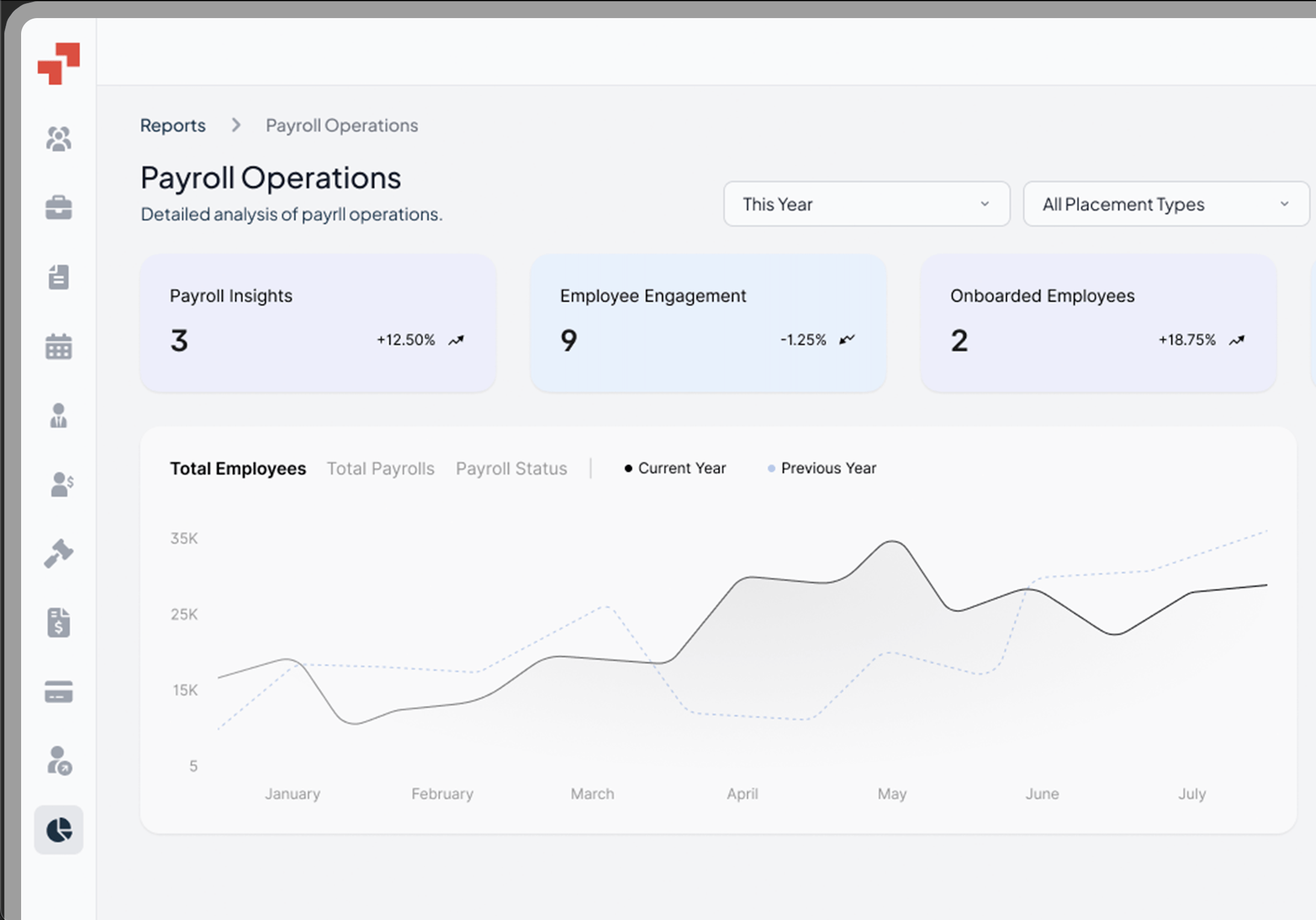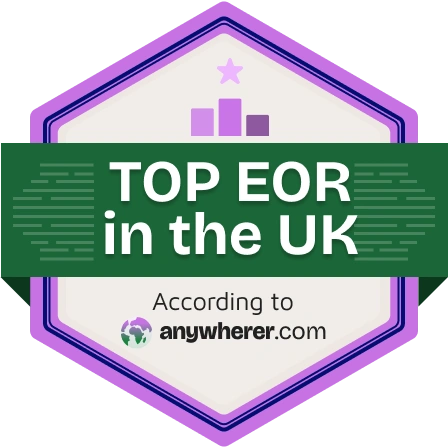Key Takeaways – EOR vs Entity Setup in India
TABLE OF CONTENTS
- Introduction to Business Structures in India
- Why Businesses Expand to India?
- Employer of Record vs Own Entity: The Basics
- Setting Up a Local Entity: Costs & Key Considerations
- Partnering with an EOR: Costs & Considerations
- EOR vs Setting up Own Entity in India: Cost Comparison
- EOR vs Entity Setup: When to use which option?
- How PamGro EOR Cuts Time to Market?
- Comparative Analysis of Leading EOR Service Providers
- Employer of Record Vs Entity: What Should You Choose?
- FAQ’s
Expanding into India is a popular move for global businesses struggling with skill shortages in their home markets as part of their global expansion strategy. An Employer of Record allows businesses to hire employees abroad without setting up a legal entity, making it a great option for companies looking for a quick and cost effective entry into the Indian market.
But the big question many companies face is: should you use an Employer of Record (EOR) or set up your own entity?
This blog will walk you through the Employer of Record vs own entity decision, looking at costs, compliance with local labor laws, and operational control, and drawing from top performing industry resources to support your business growth.
Introduction to Business Structures in India
When starting a business, it’s essential to understand the different types of business structures available, such as sole proprietorships, limited liability partnerships (LLPs), and corporations. Each structure has its own advantages and disadvantages, and choosing the right one can significantly impact the business’s success.
A limited liability Partnership (LLP) is a popular choice for many small businesses due to its flexibility and personal liability protection. An LLP separates personal assets from business liabilities, meaning that owners are not personally liable for the company’s debts or legal issues. This structure also offers tax benefits, as profits and losses can be passed through to the owners’ personal income without facing corporate taxes.
On the other hand, a sole proprietorship is a simple and cost-effective structure, ideal for small businesses and entrepreneurs just starting out. It requires minimal paperwork and offers complete control over business decisions. However, it does not provide personal liability protection, meaning that the owner is personally responsible for all business debts and legal obligations.
Why Businesses Expand to India?
India has a massive workforce, is multilingual and digitally literate. Many businesses—especially those struggling to fill roles in tech, customer support and back-office functions—turn to India for scalable human capital. And with recent tax reforms ( India’s New Tax Regime ) and government backed incentives, expanding workforce in India is now more cost effective and efficient than ever. But hiring in India involves navigating complex employment laws, tax regulations and local regulations regarding employment laws.
Read More: How recent tax reforms in India are making outsourcing more affordable for global employers
Employer of Record vs Own Entity: The Basics
When expanding to India, companies usually choose between two models:
- Employer of Record (EOR): A third party service provider that hires employees on your behalf. They handle payroll, taxes, benefits and ensure compliance with Indian employment laws and local labor laws.
- Establishing Own Entity: Involves the entity set up of a wholly owned subsidiary, branch office or joint venture in India. This requires registration, infrastructure, hiring a local team and full compliance with local labor laws and employment laws.
Setting Up a Local Entity: Costs & Key Considerations
Setting up a legal entity in a foreign country is rarely quick or cheap. It involves significant upfront investment—sometimes reaching tens or even hundreds of thousands of dollars. Setting up a local entity involves creating a distinct legal entity, which provides separation between personal and business liabilities. Major cost areas include:
- Legal Fees: You’ll need legal experts to navigate complex regulations and ensure compliance.
- Professional Services: Setting up an entity typically requires support from accountants, tax consultants, payroll specialists and benefits administrators.
- Registration Costs: These may include company incorporation, tax registration, licensing fees and other statutory expenses.
- Insurance Coverage: Expect to invest in general liability, property, professional liability and business interruption insurance.
- Administrative Expenses: These miscellaneous costs include bank account setup, licensing, payroll systems, employee visa processing and more.
- Office Setup: If physical presence is required, expenses may include leasing or buying office space, along with furnishings, equipment, internet and utilities.
- Employee Relocation: If transferring existing staff, relocation costs will be part of your budget.
- Local Director Requirements: Many countries mandate appointing at least one local resident director, which includes salary and benefits.
- Capital Requirements: Some jurisdictions require a minimum share capital to establish and maintain a legal entity.
Even after setup, ongoing operational costs will persist—ranging from payroll and property expenses to continued HR, legal and administrative support, requiring companies to allocate resources effectively.
Additionally, operating in a new country carries compliance risks. Missteps in areas like labor regulations, payroll tax, and employee benefits adminstration can result in penalties. An EOR can help companies avoid severe penalties related to international employees and worker misclassification in different jurisdictions, ensuring compliance requirements are met across all operational areas.
Finally, the process can be lengthy—taking several months to over a year. Setting up a legal entity involves registering with local authorities and may take significant time, sometimes months or even a year. If rapid market entry is your goal, setting up a local entity might not be the most efficient route.
We were exploring options to set up our entity in India and were overwhelmed by the complexities involved. PamGro stepped in with their expertise and made the entire process seamless. From legal setup to payroll compliance, they handled everything with precision. Their team was responsive, knowledgeable, and always one step ahead. Thanks to PamGro, we were able to go live in record time without any roadblocks.
— Sarah Mitchell, Head of Global Expansion
Partnering with an EOR: Costs & Considerations
Partnering with an Employer of Record (EOR) reduces the financial and logistical barriers to international expansion. Unlike the long and costly process of setting up a new legal entity, working with an EOR allows you to establish a presence in a new country within days — sometimes even within 24 hours.
Employer of Record services simplify global hiring by handling compliance regulations and costs, making it easier for businesses to expand internationally.
Beyond just saving time, using an EOR means you can avoid a whole range of overheads — from legal fees and company registration to office setup and real estate costs. EORs offer straightforward, predictable pricing so you always know what to expect when it comes to billing.
Key Advantages of Partnering with an EOR:
- Minimized Compliance Risk: The EOR is the legal employer for your global workforce, taking on all responsibility for local labor laws, tax obligations, payroll compliance and employee benefits. This reduces the legal and financial risks for your company.
- In-Country Expertise: EOR providers either have their own local teams or work closely with local partners to ensure complete compliance and local know-how.
- Rapid Onboarding: New hires can be brought on board and fully operational within as little as 24 hours — speeding up your hiring process exponentially.
- Market Flexibility: EOR services allow you to test new markets without needing to set up a permanent entity. This makes market testing low-risk and cost-effective.
- Access to Global Talent: Whether you’re hiring full-time employees or contractors, an EOR lets you tap into international talent pools with ease — regardless of your physical location.
- Scalable Growth: No physical office space or long-term infrastructure investment required, entering or exiting new markets becomes seamless and efficient.
- Operational Efficiency: By outsourcing HR administration, payroll, benefits and compliance tasks, your internal teams can focus on growing your core business.
- Support for Global Teams: EOR services support global teams by navigating local labor laws and operational challenges, alleviating risks associated with legal compliance while expanding your international presence.
Employer of Record services are typically billed as a fixed monthly fee per employee, so you know exactly what to expect. For example, providers like PamGro offer EOR services starting at $99/month per employee, This fee includes:
- Helping you employ top international talent in over 150 countries
- Legally compliant, country-specific employment contracts
- Simplified local currency payroll
- Tax reporting, pension contributions and more
- Employee benefits and healthcare options
- Work visas and permits
- End-to-end onboarding and HR support* Ongoing legal and regulatory expertise
- Background screening services
- 24/5 customer support
- Intellectual property and data protection
- Dedicated Relationship Manager
EOR vs Setting up Own Entity in India: Cost Comparison
When deciding between setting up your own legal entity and partnering with an Employer of Record (EOR), the complexities become clear the moment you consider expanding into a market like India.
India’s regulatory landscape is complex and intimidating for foreign businesses. Here’s what you might face:
- Apostille Requirements: Setting up a business in India requires official documents to be apostilled—a time-consuming process involving in-person notarization, state-level validation of that notarization and then submitting everything to Indian authorities.
- Complex Digital Signature Process: To obtain a Digital Signature Certificate (DSC), individuals must go through a strict verification process. This includes timed video calls where the applicant must read out verification codes from both their phone and email, while simultaneously holding their passport and driver’s license beside their face. Following this, an additional voice call is required for tele-verification.
- Mandatory Resident Director: Indian law requires foreign companies to appoint a Resident Director when setting up a local entity—typically an early employee who is difficult to replace later on, adding another layer of long-term risk.
- State-specific Leave Regulations: Employee entitlements like earned leave vary by state, requiring in-depth understanding of localized employment laws.
- Data Protection Compliance: New laws around employee data privacy have added to the compliance burden for employers operating in India.
Understanding and complying with legal requirements is crucial when setting up your own entity in India. This includes registration, legal counsel, and ongoing compliance costs that businesses that aspire global expansion must manage.
These are just a few examples of the regulatory hurdles global expansion aspiring businesses face when entering India through a direct entity setup.
As an employer, you are responsible for full compliance with local laws in every jurisdiction you operate in. That’s why you need to weigh your options carefully. Choosing between setting up your own entity and leveraging an EOR should be guided by your readiness to navigate legal frameworks, manage compliance risk and handle ongoing HR operations in a new and complex market.
An EOR can reduce these challenges by managing compliance, onboarding, payroll and more—making your expansion faster and smoother.
Here’s an example of the estimated upfront costs for a business to open a new entity in India versus partnering with an Employer of Record ( EOR ).
Option 1: Opening a New Legal Entity in India (1 Year) (Pvt Setup)
| Cost Category | Details | Monthly (INR) | Annual (INR) | USD (Approx.) |
| Incorporation of a company | – Drafting of name reservation application, incorporation application and filings with the Ministry of Corporate Affairs – Procuring Director Identification Number (if required) – Drafting of Memorandum of Association and Articles of Association – Procuring PAN & TAN – Co-ordination and procuring the certificate of incorporation – Preparation of first board meeting documents – Assistance in opening bank account – Filing of Forms with Reserve Bank of India – Preparation of Form FCGPR – Issuance of CS Certificate | – | 100,000 | 1,200 |
| Commercial Registrations | – Professional Tax (for both employer and employee) – GST registration – Shops & Establishment registration | – | 40,000 | 480 |
| Total One-time Setup | – | – | 140,000 | 1,655 |
| ONGOING COST | ||||
| Employee Salary* | For 5 employees | 500,000 | 60,00,000 | 70935.40 |
| Director Salary | For 2 Directors | 4,00,000 | 48,00,000 | 56700 |
| HR/Admin Cost | – | 83,333 | 1,000,000 | 12,000 |
| Compliance Services | Bookkeeping, Tax filings, Payroll compliances, Secretarial requirement | 40,000 | 480,000 | 5,760 |
| Audit Services | Tax Audit and Secretarial Audit | 0 | 70,000 | 840 |
| Total Ongoing Cost | – | 9,87,333 | 1,18,47,996 | 1,40,073 |
| OTHER CONSIDERATIONS | ||||
| Corporate Tax¹ | (5%) | – | 797,500 | 9,570 |
| Retained Income of Indian Subsidiary² | (15%) | – | 2,392,500 | 28,710 |
| GRAND TOTAL | – | 1,51,77,996 | 1,79,442.87 |
Option 2: Using an Employer of Record (EOR) – PamGro (1 Year for 3 Employees)
| Cost Element | Computation | Grand Total – Annual (INR) | Grand Total -Annual(USD) |
|---|---|---|---|
| Employee Salary* (For 5 employees) | 5 x 1,00,000 (INR) x 12 months | 60,00,000 | 70,950 |
| EOR Fee (5 Employees) | 5 × $99 × 12 months | 5,02,321 | 5,940 |
| HR/Admin Cost | Included | Included | Included |
| Total | 65,02,280 | 76,890 |
Key takeaways from this cost comparison indicate that using an EOR can be a cost-effective solution for companies looking to expand globally without the need to establish a legal entity, especially when considering the administrative and compliance costs associated with setting up and maintaining an own entity.
Summary Comparison
| Approach | Annual Total Cost (USD) |
|---|---|
| Open Legal Entity | $1,79,442.87 |
| Use EOR (PamGro) | $76,890 |
Using an EOR like PamGro can save over $1,000 annually for a small team, while also eliminating the complexities of incorporation, compliance and infrastructure setup and ensuring faster market entry
EOR services are a fraction of the cost of creating an entity, especially for businesses testing a market. But for enterprises with long term goals, setting up an entity may pay off in the long run. Understanding your risk tolerance is crucial when deciding between using an EOR and establishing your own entity, as each option carries different levels of risk and responsibility.
EOR vs Entity Setup: When to use which option?
Choosing between an Employer of Record (EOR) and setting up a legal entity depends on your business goals and stage of expansion.
Adapting business strategies to meet market demands is crucial when deciding between an EOR and setting up your own entity, as it ensures alignment with customer expectations and emerging market trends.
Businesses can opt for an EOR if you want to:
- Quickly test or enter a new market
- Hire international talent not available locally
- Scale across countries with minimal risk
- Operate immediately while planning a full setup
When businesses should go for a legal entity if you:
- Plan full-scale operations in the new market
- Aim for long-term growth and brand visibility
- Need cost-effective local production
- Want to establish a strong competitive presence
Each approach has its place—align your choice with your global vision.
How PamGro EOR Cuts Time to Market?
PamGro’s EOR services enables international businesses to launch in India in under 2 weeks. By handling onboarding, payroll and legal compliance, PamGro reduces the time to set up an entity by 90%. Companies use PamGro to bypass bureaucracy while ensuring full compliance with local labour laws and employment laws.
Utilizing PamGro’s EOR services provides a strategic advantage of quick market entry, allowing businesses to establish a presence and begin operations swiftly, thereby preventing missed opportunities due to slower traditional setup methods.
Example: A US based SaaS company expanded into India using PamGro. Within 10 days they onboarded a team of 20 developers without setting up an entity—saving over $40,000 in initial costs and 6 months in time.
Comparative Analysis of Leading EOR Service Providers
The Employer of Record (EOR) market in India has become increasingly competitive, with several providers offering services to facilitate international hiring. While the EOR market in India is growing rapidly, transparency regarding pricing remains a challenge. Many providers are reluctant to disclose their exact pricing structures, making it difficult for businesses to compare options.
Pricing Comparison
Let’s examine the starting prices per employee per month for some of the leading EOR providers:
| EOR Provider Price Comparison | |
| EOR Provider | Starting Price per Employee per Month |
|---|---|
| PamGro | $99 |
| Deel | $599 |
| Remote | $599 |
| Papaya Global | $599 |
| Multiplier | $400 |
Analysis of EOR Providers in India
PamGro stands out as the most cost-effective option, with a starting price of just $99 per employee per month. This pricing strategy positions PamGro as an attractive choice for businesses of all sizes, especially startups and small to medium enterprises looking to expand into the Indian market without incurring substantial overhead costs.
Deel, Remote, and Papaya Global start at $599 per employee per month. While these providers offer comprehensive services, their higher starting price point may be more suitable for larger corporations with bigger budgets or those requiring extensive global capabilities. Multiplier occupies a middle ground with a starting price of $400 per employee per month. This pricing makes it a potential option for Startups mid-sized companies looking to expand in India
Employer of Record Vs Entity: What Should You Choose?
Choosing between an Employer of Record vs own entity is not a one-size-fits-all decision. If your business needs speed, flexibility and cost efficiency, EOR services are ideal—especially if you’re still testing the Indian market. But if you’re committed to long term growth and want to have a long term presence and full control, building your own entity makes sense.
Establishing legal entities such as subsidiaries and branch offices has significant implications for the parent company, including legal liabilities and operational control. A subsidiary is an independent entity partly owned by the parent company, providing some liability protection, whereas a branch office does not offer such protection, leaving the parent company fully accountable.
By using EOR services like PamGro, small businesses can test new markets without diving into the complexities of local labour laws, employment laws and registration hurdles. Meanwhile those who want to plant long term roots and establish a solid business structure may find the entity route rewarding despite the challenges.
Find True Cost Of Hiring Using PamGro

FAQ's
1. What is an Employer of Record (EOR) in India?
An Employer of Record (EOR) in India is a third party organization that legally employs workers on behalf of another company. The EOR handles all employment related responsibilities including payroll, benefits, compliance with local labour laws, HR administration. This allows companies to hire employees in India without setting up their own legal entity.
2. How quickly can an EOR help me start hiring in India?
An EOR can typically help you start hiring in 1-2 weeks, much faster than setting up an entity which can take several months.
3. Is using an EOR legal in India?
Yes, using EOR services is legal and common in India. EORs act as the legal employer and ensure compliance with Indian labour laws.
4. What are the benefits of using an EOR in India?
Key benefits include:
- Rapid market entry without setting up an entity.
- Full compliance with Indian labour laws.
- Cost savings on setup and operational expenses.
- Simplified HR administration, including payroll and benefits management.
5. How much does an EOR cost in India?
Cost varies depending on how many employees, business activities and services required. For example, Wisemonk offers EOR services starting from $85 to $99 per employee per month.
6. Can I hire both full-time employees and contractors through an EOR in India?
Yes, EORs in India can hire full-time employees, part-time workers and in some cases contractors, giving you flexibility in building your workforce.
7. How does an EOR assist with compliance in India?
EOR ensures compliance with Indian employment laws by handling payroll taxes, benefits administration, statutory contributions (like Provident Fund and Employee State Insurance) and other compliance related tasks.
8. What is the difference between an EOR and a Professional Employer Organization (PEO)?
EOR acts as the legal employer, handling all employment responsibilities. PEO co-employs workers, shares responsibilities with the client company. Note that PEO arrangements typically require the client to have an entity in the country whereas EORs do not.
Read More: Difference between an EOR and a Professional Employer Organization (PEO)
9. Can an EOR manage employment contracts for remote workers in India?
Yes, EORs can draft and manage employment contracts compliant with Indian laws, ensuring clarity and legal protection for both the employer and the employee.
10. How do I choose the right EOR service provider in India?
When selecting an EOR consider:
- Compliance expertise and track record.
- Transparency in pricing.
- Range of services offered.
- Customer support and responsiveness.
- Local market knowledge and presence.
11. What are the costs of employment in India?
The costs of employment in India include salaries, benefits, taxes and compliance costs which vary based on industry, location and company size. Check our : Employee Cost Calculator – India.
12. What is a take-home salary calculator?
A take-home salary calculator helps employees in India calculate their net pay after deductions like taxes, provident fund and other contributions. Check Our: Take Home Pay Calculator – India
13. How important are customer expectations when expanding to new markets?
Being responsive to customer expectations is crucial when expanding to new markets. Adapting business strategies based on feedback and performance data helps refine products and services, ensuring they meet market demands effectively.
Hire the Best Talent, Anywhere


Soham wasn’t always an international employment guru. He began with a passion for numbers, surprising shopkeepers with his mental math skills.
At PamGro, Soham spearheads international expansion and EOR (Employer of Record) services, driving global business strategies and ensuring compliance across multiple regions.









